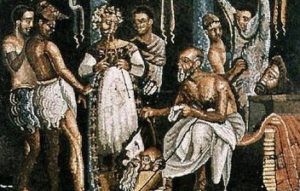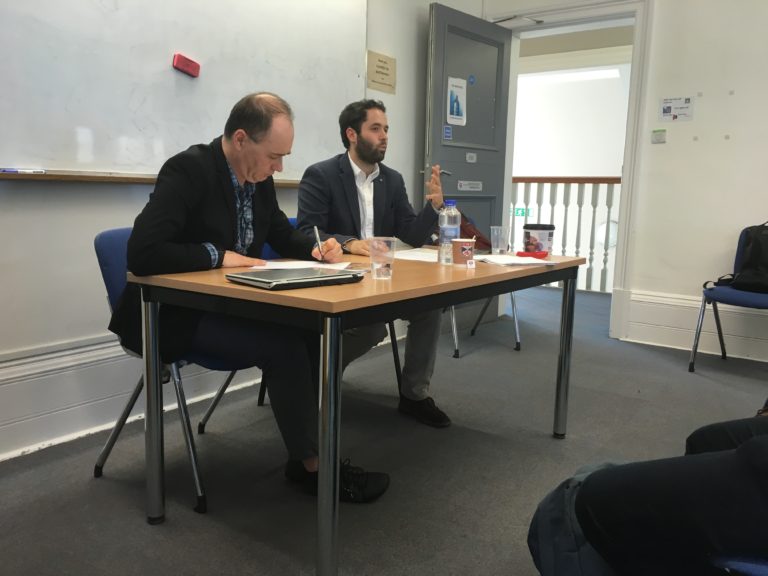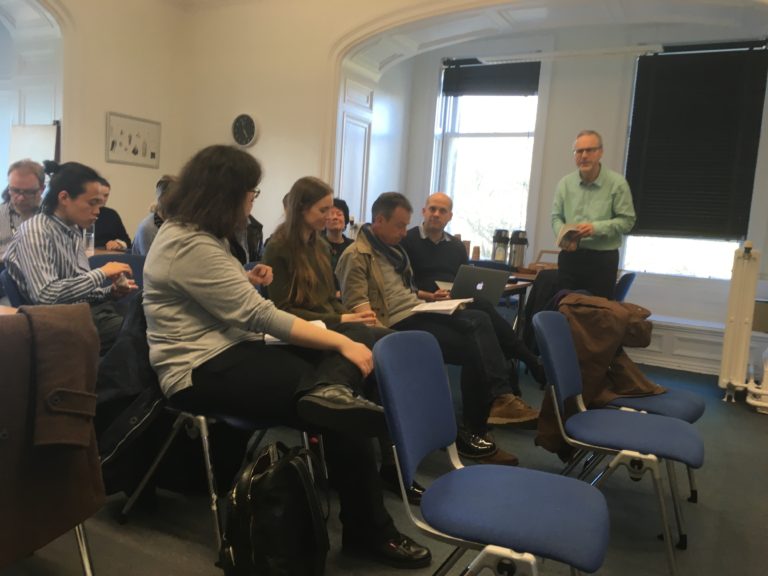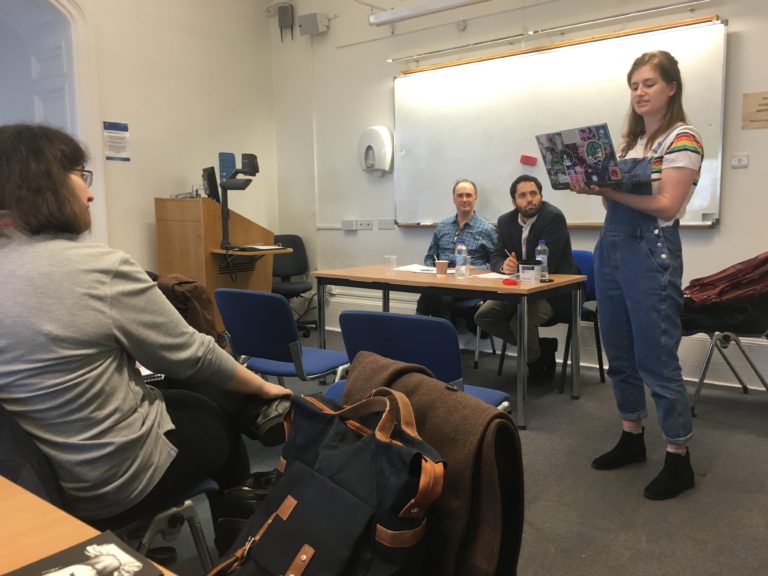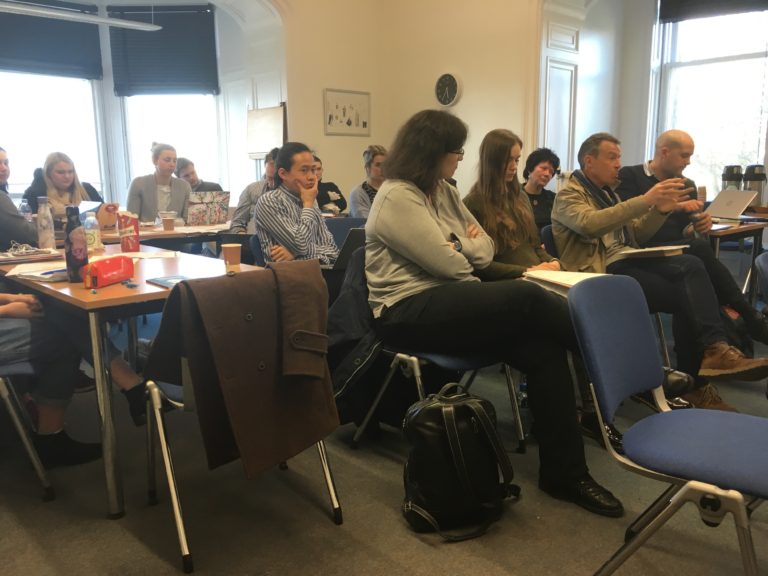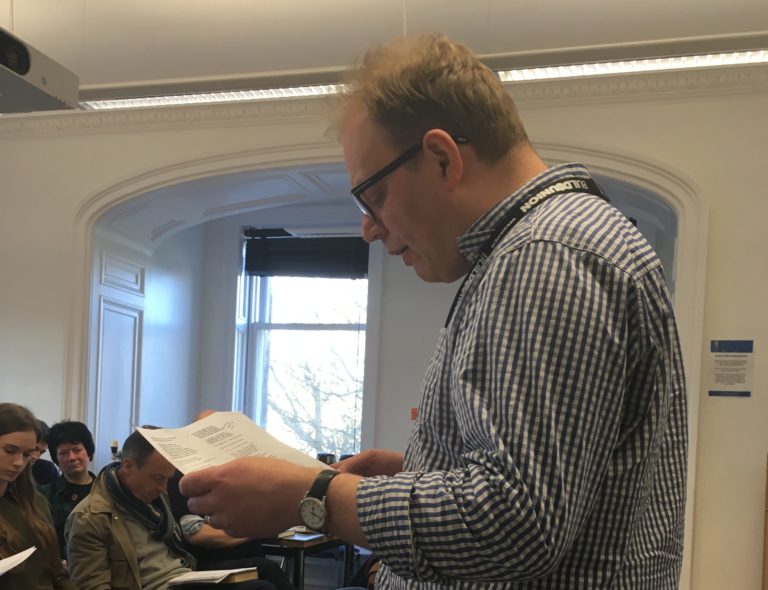Translating Aeschylus
Translating Aeschylus: pragmatic perspectives
A workshop with Martin Revermann (Toronto) and Francesco Morosi (SNS Pisa),
hosted by the Centre for the Public Understanding of Greek and Roman Drama (CPUGRD)
School of Classics, S11, 10 April 2019
The aim of the workshop was to reflect on the challenges of translating an ancient play into a modern performance, by confronting them in a practical context. The workshop was devoted to practical translation work for the stage, using, as a case-study, two passages from Aeschylus’ Agamemnon (218-238 and 931-957). Participants were divided into three groups, with different source material (the original Greek, the Greek and the Loeb translation, a selection of English translations only). The task was to approach the source material from the perspective of the theatre practitioner, and convert it into a performative text, which was then discussed in a plenary session and ‘tested’ with a live performance. Participants to the workshop worked on the text in the following editions:
- Group 1 (Greek only): OCT by Denys Page (1972)
- Group 2 (Greek and English): OCT + Loeb (Sommerstein 2008)
- Group 3 (translations only): Harrison (1981), Taplin (2018) and Berkoff (1977).
Translation work (Agamemnon parodos)
Group 1
After he put on the noose of necessity,
snorting in his chest a swirling wind,
profane, unclean, unhallowed,
at once he twisted his mind 220
to think the undarable.
For wretched mind-damage,
foreshadowing evil, vile-thinking
emboldens humans.
And then he dared to become
the slaughter of his daughter,
to smooth the path
to woman-revenging wars,
and the sacrifice for the ships.
Group 2
He took on necessity’s weight, he lashed himself to it,
breathing an impious wind that veered
towards impurity, unholiness,
and then he changed his mind to one 220
whose thoughts surpassed all daring;
For shameless planning emboldens mortals,
this first cause of evil wretchedly strikes the mind;
he undertook it himself, then,
a sacrificer of his daughter,
an aid in woman-avenging war
and a consecration for the ships;
Her pleas, her screams of ‘father’
her naive youth, were dismissed to nothingness,
by the warlike generals;
first a prayer, then a father’s command,
to the attendants, to raise her up,
above the altar, a goat for slaughter,
a cascade of robes, struggling against strength,
her sweet mouth gagged,
to prevent any words that would curse the house,
to rob her violently of that power.
Group 3
He bared her warm throat to the cold knife
He set the ball and chain around his ankle which he was destined to do
He was pushed towards a crime of unspeakable horror
He plotted and planned, birthing his own Frankenstein
A creature free from the shackles of morality
His madness snatched the blade,
The sharp steel burnished by the frenzy in his eye,
Holding the cusp of war in his palm.
He bared her warm throat to the cold knife
Her cries, her innocence, her youth
Go unheeded, ignored
By the warmongering leaders. The father tells his men 230
To pray and then to butcher her like a spring lamb,
Thrashing and kicking against their grip.
Her cries and pleas silenced
Lest her delicate mouth put her house beneath a curse.
He bared her warm throat to the cold knife
Greedy hands tore off her saffron-silks
Casting away youthful innocence
She shot each leader looking on 240
A jagged arrow from her lovely eye,
Burrowed pity into the wicked bystanders’ hearts
Her chaste beauty crumbling like a decaying sculpture
Her pleading cries locked into the eternal stone
Her voice a mere memory ringing through the guests minds
As they make their final toasts.
He bared her warm throat to the cold knife
Pictures from the Workshop
